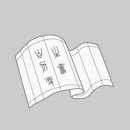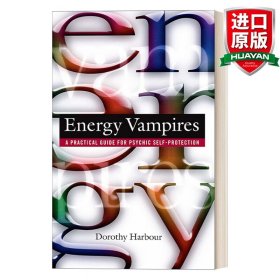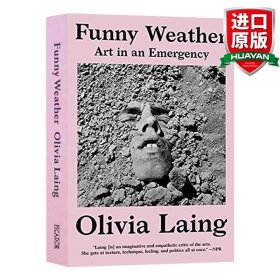
英文原版 Going Solo 独闯天下-罗尔德达尔 英文版 进口英语原版书籍
书籍内容简介可联系客服查阅,查书找书开票同样可以联系客服
¥ 42 ¥ 42 九五品
库存191件
广东广州
认证卖家担保交易快速发货售后保障
作者Dahl, Roald
出版社Puffin Books
ISBN9780142413838
出版时间2009-01
装帧平装
定价42元
货号YB-2304
上书时间2024-03-16
- 最新上架
商品详情
- 品相描述:九五品
- 商品描述
-
内容摘要
书名:Going Solo独闯天下 难度:Lexile蓝思阅读指数1080L 作者:Roald Dahl罗尔德·达尔 出版社名称:Puffin Books 出版时间:2009 语种:英文 ISBN:9780142413838 商品尺寸:13 x 1.6 x 19.7 cm 包装:平装 页数:240 Going Solo 《独闯天下》是奇幻文学大师罗尔德·达尔自传Boy: Tales of Childhood 《好小子:童年故事》的续集。 前面说到达尔完成了中学学习,他希望从事一个职业能带他到“像非洲和中国一样美妙的遥远地方。”他赢得了壳牌石油公司的好职位。1938年秋天,达尔被调到非洲工作,在那里他和壳牌石油公司的另两名代表一起管理整个东非领域,同时也开始有了更多奇妙惊险的经历,比如眼镜蛇进入他朋友的房子而不得不叫捕蛇者来捕蛇,或者一只狮子抓住了一个本地妇女,而达尔关于其营救过程的纪录被登在一家非洲报纸上,这成为他首篇公开发表的作品。 From the bestselling author Charlie and the Chocolate Factory and The BFG comes an autobiographical account of his exploits as a World War II pilot! Superb stories, daring deeds, fantastic adventures! Learn all about Roald Dahl’s encounters with the enemy, his worldwide travels, the life-threatening injuries he sustained in a plane accident, and the rest of his sometimes bizarre, often unnerving, and always colorful adventures. Told with the same irresistible appeal that has made Roald Dahl one of the world’s best-loved writers, Going Solo brings you directly into the action and into the mind of this fascinating man. 罗尔德·达尔 是世界奇幻文学大师,他的作品构思奇特,情节紧凑,在每个故事的开始就打破现实与幻想之间的常规对应,其魔力穿越语言和国界。凡是读过达尔作品的孩子全都情不自禁迷倒在他创造的畅快淋漓的魔力世界,无一幸免。 主要作品包括:《查理和巧克力工厂》《女巫》《了不起的狐狸爸爸》《好心眼儿巨人》《詹姆斯和大仙桃》《玛蒂尔达》等等,上述作品都先后被拍成电影,如:《查理和巧克力工厂》由影帝“约翰尼德普”主演;《好心眼儿巨人》由奥斯卡金牌导演“斯皮尔伯格”执导,黄磊、黄多多配音。 众多重点小学语文老师推荐孩子课外阅读达尔的书,黄多多说达尔的故事她看了一遍又一遍,多多妈妈发微博说罗尔德达尔是多多非常非常喜欢的作家。 达尔获得的重要奖项: 三度获得“爱伦·坡文学奖”; 获得英国“白面包儿童图书奖”; 获得“英国儿童图书奖”; 获得“德国青少年文学奖”; 获得“世界奇幻文学大会奖”; 英国读者票选战胜J.K.罗琳的当代文学大师。 Roald Dahlis one of the most successful and well-known of all children’s writers. His books, which are read by children the world over, includeJames and the Giant Peach; Charlie and the Chocolate Factory; The Witches and Matilda. The ship chat was carrying me away from England to Africa in the autumn of 1938 was called the SS Ianto1a. She was an old paint—peeling tub of 9,000 tons with a single tall funnel and a vibrating engine that rattled the tea-cups in their saucers on the dining-room table. The voyage from the Port of London to Mombasa would take two weeks and on the way we were going to call in at Marseilles, Malta, Port Said. Suez. Port Sudan and Aden. Nowadays you can fly to Mombasa in a few hours and you stop nowhere and nothing is fabulous any more, but in 1938 a journey like that was full of stepping-stones and East Africa was a long way from home, especially if your contract with the Shell Company said that you were to stay out there for free years at a stretch. I was twenty—two when I left. I would be twenty-five before I saw my family again. What I still remember so clearly about that voyage is the extraordinary behavior of my fellow passengers. I had never before encountered that peculiar Empire-building breed of Englishman who spends his whole life working in distant corners of British territory. Please do not forget that in the £9305 the British Empire was still very much the British Empire, and the men and women who kept it going were a race of people that most of you have never encountered and now you never sill. I consider myself very lucky to have caught a glimpse of this rare species while it still roamed the forests and loot-hills of the earth, for tubby it is totally extinct. More English than the English, more Scottish than the Scots, they were the craziest bunch of humans I shall ever meet. For one thing, they spoke a language of their own. If they worked in East Africa, their sentences were sprinkled with Swahili words, and if they lived in India then all manner of dialects were intermingled. As well as this, there was a whole vocabulary of much-used words than seemed to be universal among all these people. An evening drink, for example, was always a sundowner. A drink at any other rime was a chute peg. One’s wife was the memsahib. To have a look at something was to have a shaft. And from that one, interestingly enough, RAF/ Middle East slang for a reconnaissance plane in the last war was a shifty kite. Something of poor quality was Shensi. Supper was tilling and so on and so forth. The Empire-builders’ jargon would have tilled a dictionary. All in all, it was rather wonderful for me, a conventional young lad from the suburbs, to be thrust suddenly into the middle of this pack of sinewy sunburn gophers and their bright bony little wives, and what I liked best of all about them was their eccentricities. It would seem that when the British live for years in a foul and sweaty climate among foreign people they maintain their sanity by allowing themselves to go slightly dotty. They cultivate bizarre habits that would never be tolerated back home, whereas in far-away Africa or in Ceylon or in India or in the Federated Malay States they could do as they liked. On the SS Iantola just about everybody had his or her own particular maggot in the brain, and for me it was like watching a kind of non-stop pantomime throughout the entire voyage. Let me tell you about two or three of these comedians. 1234567
— 没有更多了 —












以下为对购买帮助不大的评价